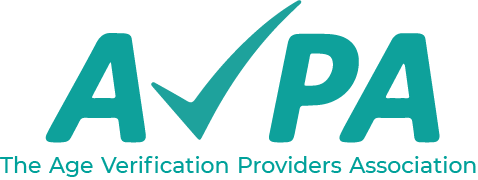London, 31 August 2025 – The Age Verification Providers Association (AVPA), the global trade association for suppliers of age assurance technology, welcomes the publication of the Australian Government’s Age Assurance Technology Trial final report, conducted by the Age Check Certification Scheme, as an independent evaluation. The report sets out how a careful, standards-based assessment that was conducted at arm’s length from government and regulators, with a formal statement of impartiality and independent governance throughout.
The Trial concludes that age assurance can be done privately, efficiently and effectively, with no substantial technological barriers to deployment. It also confirms that the participating providers’ claims were independently validated against the project’s criteria using a range of tests, involving over 1,000 school children and adult mystery shoppers from across Australia.
The AVPA notes the rigour of the methodology, including the leadership of a Scientific and Technical Advisory Cell, and independent technical review by Professor Toby Walsh. The trial used a standards-based test design and reproducible documentation and included a provider review of draft findings and a commitment to open science. Together these features strengthen confidence in the results.
The report records areas to improve which we will be considering carefully with our members. It cautions against unnecessary data retention – for AVPA members, data minimisation is a core requirement of our Code of Conduct, but most participants were not members of the Association. It also recognises limits of parental controls, and stresses the ongoing need for security vigilance. None of these is insolvable. They are the kind of issues that good regulation, independent audit and certification and continuous improvement are designed to address.
The Trial also makes a strong case for independent, third-party providers. Separating age assurance from the relying party reduces data use and helps ensure that age signals are provided for a single, limited purpose. The findings show alignment with international standards like ISO/IEC 27566 and IEEE 2089.1, and point to accreditation and certification as the right next step. Successive validation models further demonstrate how providers can deliver proportionate, privacy-first outcomes which are both inclusive and accessible.
Alastair Graham, AVPA Co-Chair, said:
- “This report is good news for people who agree children need better online protection but do not want to use a government-issued ID or involve BigTech platforms each time they access age-restricted content or services online. It shows that well-regulated, third-party, privacy-preserving age assurance is effective, and it will only get more convenient through the adoption of re-usable digital IDs and interoperability.”
Julie Dawson, AVPA Co-Chair, said:
- “This is the most thorough and independent review of age assurance yet. It proves the technology works, can protect privacy by design, and is ready to support policy decisions. Trust depends on independent checks, strong privacy controls, and clear accountability and this report shows the sector is already doing just that – aligning with international standards and using different methods responsibly. The message for policymakers is clear: build on this baseline evidence with standards-based certification, independent providers, and regular audits, so age assurance services meet a consistently high bar and are data minimised.”
The AVPA congratulates the Trial team on a rigorous and transparent process that assessed 48 providers across multiple methods and contexts. We stand ready to work with the Australian Government, the eSafety Commissioner and regulators around the world to embed independent, third-party age verification in a closely regulated ecosystem that protects children and respects privacy.
ENDS
Notes for Editors
- The Full Report can be found here: https://ageassurance.com.au/report/
- 48 providers put forward solutions for assessment by the trial
- The trial considered the three formal categories of age assurance – age verification, age estimation and age inference – but also look at alternative propositions, such as app-store based checks.
- It also considered the risk circumvention, both from AI-generated deepfakes, and the use of VPNs to hide a user’s location.
- The Association’s code of conduct is here: https://avpassociation.com/membership/avpa-code-of-conduct/
About The Age Verification Providers Association
The AVPA is the global trade body for independent providers of privacy-protecting, standards-based, age assurance technology. Our mission is to make the Internet “age-aware”
As an association, we work to:
- Inform and educate the public, industry and media on age verification and age estimation solutions and technology.
- Promote a positive image of privacy-preserving age assurance and the independent sector which delivers it.
- Represent the industry to regulators and law makers for the advancement of best practice.
The AVPA was formed in 2018 and is growing rapidly as the age and identity provider industry takes off.
The AVPA is a non-profit organisation, governed by a representative Board drawn from its member organisations.
Contact: Iain Corby
press@avpassociation.com
